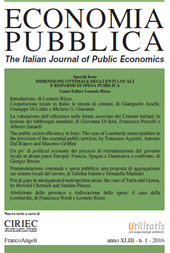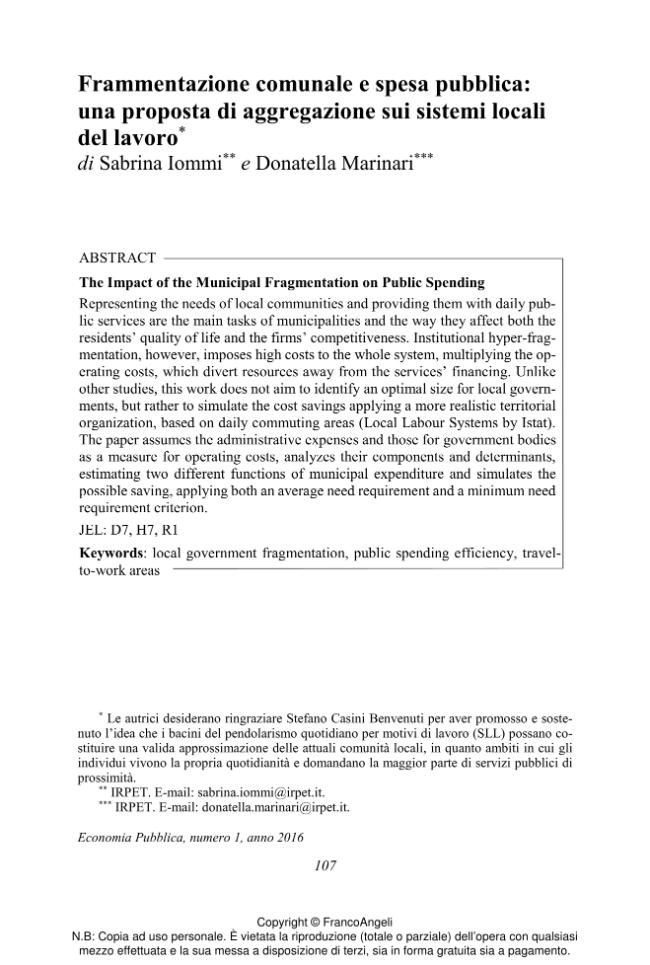Frammentazione comunale e spesa pubblica : una proposta di aggregazione sui sistemi locali del lavoro
107-136 p.
Representing the needs of local communities and providing them with daily public services are the main tasks of municipalities and the way they affect both the residents' quality of life and the firms' competitiveness. Institutional hyper-fragmentation, however, imposes high costs to the whole system, multiplying the operating costs, which divert resources away from the services' financing. Unlike other studies, this work does not aim to identify an optimal size for local governments, but rather to simulate the cost savings applying a more realistic territorial organization, based on daily commuting areas (Local Labour Systems by Istat). The paper assumes the administrative expenses and those for government bodies as a measure for operating costs, analyzes their components and determinants, estimating two different functions of municipal expenditure and simulates the possible saving, applying both an average need requirement and a minimum need requirement criterion.
Fait partie de
Economia pubblica : XLIII, 1, 2016-
Articles du même numéro (disponibles individuellement)
-
Informations
Code DOI : 10.3280/EP2016-001006
ISSN: 1972-5566
KEYWORDS
- Local government fragmentation, public spending efficiency, travel-to-work areas



